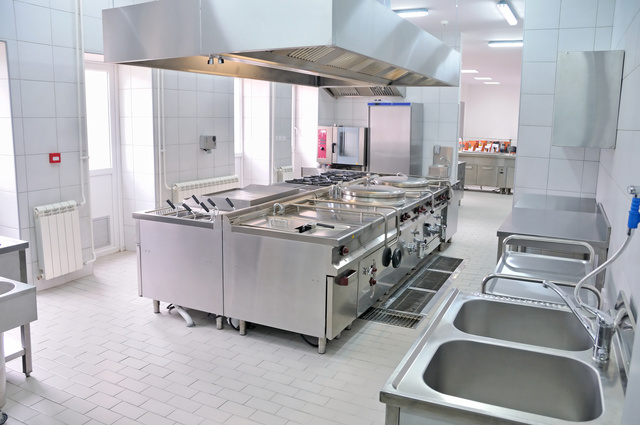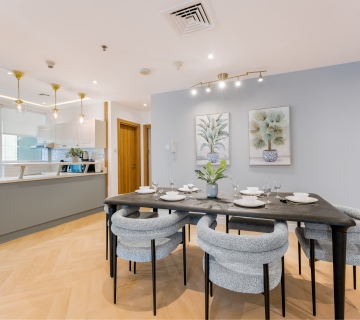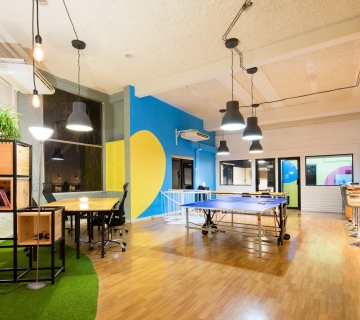Just in case this wasn’t blindingly obvious: it’s rather hard to have a successful restaurant without a functioning kitchen. While no prospective restaurant owner should neglect the front of the house to any degree, the same goes double for the kitchen. Even the best experience within the dining area will ultimately mean nothing if the food is poorly cooked, poor in variety, and unappealing to look at. So, it’s important to ensure that your kitchen is stocked with the best catering equipment your budget can afford and that it is all ready to use by the time of the grand opening.
Securing the best equipment for your kitchen can be a challenge. While many find owning a restaurant a rewarding experience, the start-up is expensive and hard to pull off. Many that are new to the catering business make costly mistakes early on, and costly mistakes that occur soon into your business’s lifespan can be terminal.
The Basics
At an absolute minimum, your restaurant should have the following:
-
Cookers
-
Fridges, freezers and other cold storage units
-
Food prep surfaces, including cutting boards
-
Bowls, saucepans, pans, and other containers
-
Knives of various types, and other kitchen utensils such as spatulas and ladles,
-
Sinks, faucets, and other washing appliances
-
Cutlery, crockery, and plates
-
Shelving and storage areas
-
Trays and transportation, such as desert carts.
-
Hygiene supplies, such as mops, brushes, cloths, bleaches and antibacterial solutions.
Planning Ahead
You should plan your kitchen equipment around two things: your menu and your capability. In the first case, you don’t have the budget to buy equipment that you’re unlikely to use. If your specialty is Asian dishes, a deep fat fryer is probably not going to be very essential. Conversely, a Texan-style steak house is unlikely to make much use out of a wok or a sushi table.
Therefore, always have a grounded idea of what your menu will mainly consist of, and orientate your equipment around it. For the first couple of years of your restaurant’s opening, you may find it useful to specialize. Focus on doing several specific dishes really well, rather than wasting money and energy trying to do everything. Find your preferred niche and stick with it. The moment your business becomes more established, you’ll have more time, resources, and opportunity to branch out and experiment with new styles.
Also, it is important to consider size. If you have a small kitchen, you’ll need to be utilitarian with your equipment. Consider buying combination cookers, compact appliances, and invest in efficient storage and surface space.
Ideally, you should be working with your kitchen staff on this. Talk with your chefs and get their input on what they’re going to need while also considering their skill sets. Do not buy equipment they will not know how to use. If necessary, run through a mock dinner rush to see how well the catering equipment performs on a busy night. Use this to gauge how efficient your kitchen functions.
You should also try to foresee any potential problems within your restaurant’s business. For example, if your kitchen is rather dependent on a particular piece of equipment, consider investing in a redundant piece in case the original one breaks down.
Safety and Hygiene Are Everything
Never become too fixated on the actual cooking. Always make sure you’re equipping yourself with less obvious and glamorous effects too. Catering equipment also includes sundry items such as knives, utensils, pans, pots, and cutting boards. It also includes essential hygiene equipment such as mops, cleaning substances, and a dedicated washing up area.
You should make sure your cleaning cupboard is fully stocked, that your kitchen has the necessary fire safety equipment such as fire alarms, extinguishers, fire blankets, and that there is a fully stocked first aid kit on hand as well.
Remember to Budget
Do not spend what you cannot afford to lose. When purchasing items, always ask whether it’s actually necessary to your kitchen. Do not waste money on useless frills and luxuries. Every dollar you spend now must make a return later.
You can try to stretch the budget through careful spending practices. For example, we’ve already mentioned combination cookers. Similar appliances that combine several different functions into one machine can be very useful for a kitchen that’s just starting out, as they allow you to save money you would otherwise had spent on the separate appliances themselves. They also make more efficient use of space, which can be handy for future expansion.
Another way to expand your initial investment is to consider buying appliances second hand. This greatly knocks off the price, and allows you to quickly stock your kitchen with the catering equipment it needs while still having enough left over to invest in other areas of the restaurant. Of course, buying second hand carries risks as you cannot guarantee the condition of the equipment.
To rectify this, consider buying replacement parts for your second hand equipment. This is still fairly cost effective, allowing you to acquire a fully functioning piece of equipment for a fraction of the price. You can also keep any additional replacement parts to one side in case they break down again further down the line. This will save you money on expensive repairs or replacements, showing that it does pay to be prepared. 24/7 Restaurant Parts is reliable service that supplies needed parts for kitchen equipment. Services like these offer inventory from various brands with affordable to expensive price ranges.
Check, Double Check, and Check Again
Once your kitchen is set up, makeup a checklist and go through the kitchen. Have you got everything you need? Is there anything you can add to your kitchen? Check your inventory and the potential supplies that your kitchen may need to be successful. Once you do this, go through the checklist again to be sure that the kitchen is ready.
We’ve already mentioned doing a quick test run with the kitchen staff to check the efficiency. Before you officially open, consider hosting a celebratory party for staff, their friends and family, and any investors your business may be lucky enough to have. Use this to give your kitchen a test run and see if there are any hiccups with the equipment.



